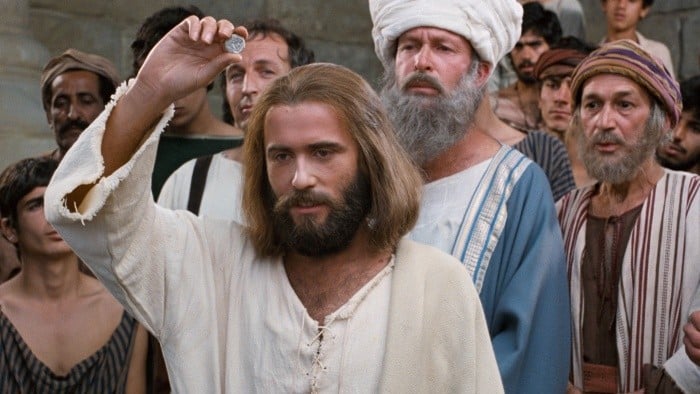What Is the Meaning of the Parable of the Talents?

Related Posts
Subscribe To Our Weekly Newsletter
Sign up for our weekly newsletter, Jesus Film Project News, to receive encouraging stories, videos and resources in your inbox.
Matthew devotes a lot of time to Christ’s second coming in his Gospel-both chapters 24 and 25 are dedicated to the topic. In these two chapters, Jesus uses a number of parables to communicate essential principles about His return. Among them is the parable of the talents: a short story about a master and his three servants.
Let’s take a look at what Jesus intended us to learn from this parable.
The Parable of the Talents
Again, it will be like a man going on a journey, who called his servants and entrusted his wealth to them. To one he gave five bags of gold, to another two bags, and to another one bag, each according to his ability. Then he went on his journey. The man who had received five bags of gold went at once and put his money to work and gained five bags more. So also, the one with two bags of gold gained two more. But the man who had received one bag went off, dug a hole in the ground and hid his master’s money.
After a long time the master of those servants returned and settled accounts with them. The man who had received five bags of gold brought the other five. “Master,” he said, “you entrusted me with five bags of gold. See, I have gained five more.”
His master replied, “Well done, good and faithful servant! You have been faithful with a few things; I will put you in charge of many things. Come and share your master’s happiness!”
The man with two bags of gold also came. “Master,” he said, “you entrusted me with two bags of gold; see, I have gained two more.”
His master replied, “Well done, good and faithful servant! You have been faithful with a few things; I will put you in charge of many things. Come and share your master’s happiness!”
Then the man who had received one bag of gold came. “Master” he said, “I knew that you are a hard man, harvesting where you have not sown and gathering where you have not scattered seed. So I was afraid and went out and hid your gold in the ground. See, here is what belongs to you.”
His master replied, “You wicked, lazy servant! So you knew that I harvest where I have not sown and gather where I have not scattered seed? Well then, you should have put my money on deposit with the bankers, so that when I returned I would have received it back with interest.
“So take the bag of gold from him and give it to the one who has ten bags. For whoever has will be given more, and they will have an abundance. Whoever does not have, even what they have will be taken from them. And throw that worthless servant outside, into the darkness, where there will be weeping and gnashing of teeth” (Matthew 25:14-30, New International Version).
What’s a talent?
You might have noticed that the word talent doesn’t appear anywhere in the parable of the talents. The word that the NIV translates as “bags of gold” is actually a talent-a first-century unit of currency. A talent represented a large sum of money. A lot of older translations used to use the word talent, so the parable came to be known as “The Parable of the Talents.”
The value of the money entrusted to the servants isn’t that important. Suffice it to say that the master was extremely rich and was entrusting a tremendous amount to them.
What details are important?
Jesus’ parables were intended to communicate an important principle or idea. Sometimes people get themselves into trouble by attaching too much significance to every aspect of the story. Here are some things it’s probably wise to notice.
The master’s distribution
In the beginning, we see the master making the disciples responsible for managing a portion of his estate. Even though the servants are given different sums to take care of, it all still belongs to the master. They’re merely administrators who will answer for how they invested the master’s belongings.
This fact reinforces the principle of stewardship. As believers, we are all given resources according to our skills and abilities, but those resources ultimately belong to God. We will eventually answer for how we invest them.

Leading a small group or Bible study?
Download a free copy of Unpacking the Parables of Jesus. This guide is packed with the necessary tools to lead your group through an insightful discussion of Jesus’ parables, such as the Parable of the Talents. You’ll find critical insights and thoughtful questions to help guide your group through Jesus’ essential teachings. You’ll also receive our bi-weekly JFP News, packed with films and resources to help you share Jesus’ story with the world.
The master’s happiness
When the master returns and hears the reports of the first two servants, he’s pleased. His response is to invite them to share in his happiness. This is an odd and evocative invitation.
In place of the wrath that people associate with God’s judgment, Jesus represents the faithful as entering into His happiness-experiencing His joy. It’s reminiscent of Jesus’ words in Luke 12:32. “Do not be afraid, little flock, for your Father has been pleased to give you the kingdom” (NIV).
The unfaithful servant who doesn’t give the master a return on his investment is thrown out where he will never experience the master’s happiness.
The master’s personality
When the unfaithful servant returns the exact amount he received, the master is infuriated. Where is the return on the servant’s investment? To excuse himself, the servant reveals to the master that he was scared. Knowing the master to be a merciless boss, he was afraid to invest and lose the master’s money. This is the reason he just buried it in the yard.
The master responds in anger. If you were truly afraid of me-he seems to say-you would have responded differently. You would have done anything to have something to offer. The master’s words challenge the third servant’s words.
Too often we allow our misunderstood views about God to justify or excuse poor stewardship or disobedience.
What’s the point of the parable of the talents?
As servants of Christ, we are called to be productive. All of our health, money, time, and abilities have come from Him, and we are tasked with putting them to use to benefit the kingdom. A time is coming when the Master will return to settle accounts, and then it will be too late.
It’s not enough to say, “I didn’t waste what you gave me, Lord.” We want to demonstrate how we have used the gifts and abilities we have been given to benefit the kingdom. God desires that we be risk takers who share His commitment. That’s how we’ll enter into the happiness of the Master.


